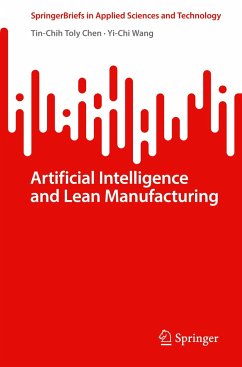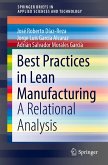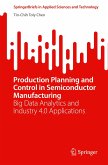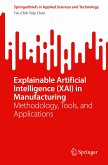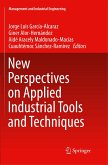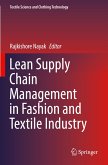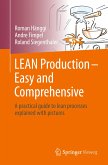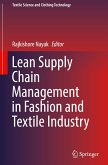This book applies artificial intelligence to lean production and shows how to practically combine the advantages of these two disciplines.
Lean manufacturing originated in Japan and is a well-known tool for improving manufacturers' competitiveness. Prevalent tools for lean manufacturing include Kanban, Pacemaker, Value Stream Map, 5s, Just-in-Time and Pull Manufacturing. Lean Manufacturing and the Toyota Manufacturing System has been successfully applied to various factories and supply chains around the world. A lean manufacturing system can not only reduce wastes and inventory, but also respond to customer needs more immediately. Artificial intelligence is a subject that has attracted much attention recently. Many researchers and practical developers are working hard to apply artificial intelligence to our daily lives, including in factories. For example, fuzzy rules have been established to optimize machine settings. Bionic algorithms have been proposed to solve production sequencing and scheduling problems. Machine learning technologies are applied to detect possible product quality problems and diagnose the health of a machine.
This book will be of interest to production engineers, managers, as well as students and researchers in manufacturing engineering.
Lean manufacturing originated in Japan and is a well-known tool for improving manufacturers' competitiveness. Prevalent tools for lean manufacturing include Kanban, Pacemaker, Value Stream Map, 5s, Just-in-Time and Pull Manufacturing. Lean Manufacturing and the Toyota Manufacturing System has been successfully applied to various factories and supply chains around the world. A lean manufacturing system can not only reduce wastes and inventory, but also respond to customer needs more immediately. Artificial intelligence is a subject that has attracted much attention recently. Many researchers and practical developers are working hard to apply artificial intelligence to our daily lives, including in factories. For example, fuzzy rules have been established to optimize machine settings. Bionic algorithms have been proposed to solve production sequencing and scheduling problems. Machine learning technologies are applied to detect possible product quality problems and diagnose the health of a machine.
This book will be of interest to production engineers, managers, as well as students and researchers in manufacturing engineering.

